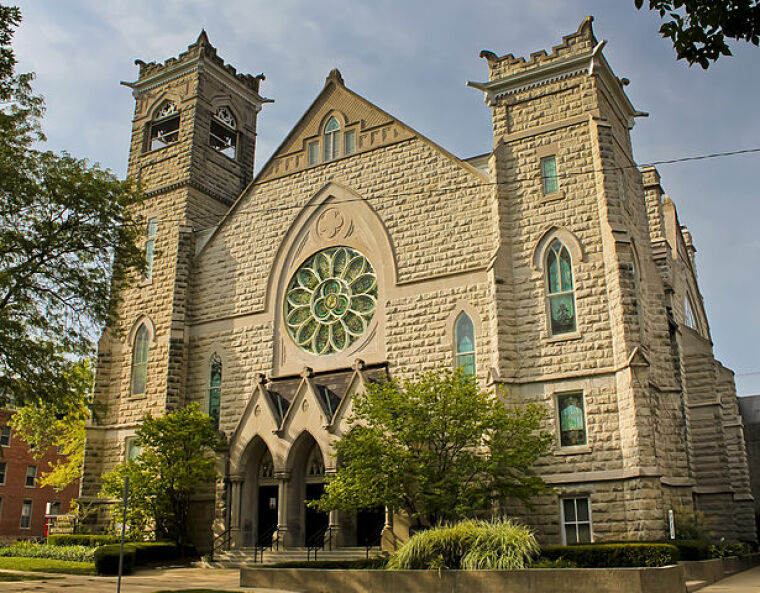Methodists raise concern about opposing petitions in upcoming special session on LGBT members

Methodists are expressing concern that the upcoming special session on sexuality would be slowed down by opposing petitions, similar to the ones that resulted in the creation of a new commission to address the issue in 2016.
According to Religion News Service, the denomination's Judicial Council has issued a decision on Friday, allowing clergy, lay member or any organization that belonged to the United Methodist Church to submit petitions that will be considered at the special session.
The United Methodists are scheduled to address the issue of same-sex marriage and ordination of LGBT priests in a special session of the denomination's General Conference in February 2019. Some members were concerned that the upcoming meeting would be stuck on the issue if petitions are submitted by opposing camps.
"That is certainly a major concern — that the body gets so bogged down with rules and procedure and questions and points of order that the body doesn't make any kind of determination," said Stephanie Henry, rules committee chair for Commission on General Conference, as reported by Religion News Service.
The Judicial Council has stressed in its decision that the petitions must be "in harmony with the purpose" of the special session.
The bishops' call for a special session maintained that the purpose of the event is "limited to receiving and acting upon a report from the Council of Bishops based on the recommendations of the Commission on a Way Forward."
The Commission was reportedly set up during the 2016 conference in Portland to deal with all discussions about sexuality after the church found itself sharply divided over the issue.
At least 56 legislative petitions, including those dealing with ordination of gay clergy and same-sex marriage, were reportedly submitted during the 2016 conference.
The Commission came up with three proposals — The Traditionalist Plan, The One Church Plan and the Connectional Conference Plan — to resolve disagreements on the issue of sexuality.
Earlier this month, the Council of Bishop endorsed the One Church Plan, which allows individual pastors and regional bodies to decide whether to conduct same-sex weddings or ordain homosexual clergy.
The Council's recommendation will reportedly be included in the bishops' report to the special session.
The bishops had reportedly asked the Judicial Council to decide whether delegates at the special session would consider additional petitions apart from responding to their report.
John Lomperis, who serves as the denomination's director for the conservative Institute on Religion and Democracy, said that he was "very happy" by the ruling issued by the Judicial Council on Friday.
He said that he was worried that limiting the special session to the bishops' report would allow a "liberal majority faction within the United Methodist bishops to dictate what sorts of thing we delegates could or could not decide in 2019."
Henry said that she was not surprised by the Judicial Council's ruling, but she expressed disappointment that the court had not provided more guidance on what is considered to be "in harmony" with the purpose of the session.
 Christians don't have to affirm transgenderism, but they can’t express that view at work: tribunal
Christians don't have to affirm transgenderism, but they can’t express that view at work: tribunal Archaeology discovery: Medieval Christian prayer beads found on Holy Island
Archaeology discovery: Medieval Christian prayer beads found on Holy Island Presbyterian Church in America votes to leave National Association of Evangelicals
Presbyterian Church in America votes to leave National Association of Evangelicals Over 50 killed in 'vile and satanic' attack at Nigerian church on Pentecost Sunday
Over 50 killed in 'vile and satanic' attack at Nigerian church on Pentecost Sunday Ukrainian Orthodox Church severs ties with Moscow over Patriarch Kirill's support for Putin's war
Ukrainian Orthodox Church severs ties with Moscow over Patriarch Kirill's support for Putin's war Islamic State kills 20 Nigerian Christians as revenge for US airstrike
Islamic State kills 20 Nigerian Christians as revenge for US airstrike Man who served 33 years in prison for murder leads inmates to Christ
Man who served 33 years in prison for murder leads inmates to Christ


 Nigerian student beaten to death, body burned over ‘blasphemous’ WhatsApp message
Nigerian student beaten to death, body burned over ‘blasphemous’ WhatsApp message 'A new low': World reacts after Hong Kong arrests 90-year-old Cardinal Joseph Zen
'A new low': World reacts after Hong Kong arrests 90-year-old Cardinal Joseph Zen Iran sentences Christian man to 10 years in prison for hosting house church worship gathering
Iran sentences Christian man to 10 years in prison for hosting house church worship gathering French Guyana: Pastor shot dead, church set on fire after meeting delegation of Evangelicals
French Guyana: Pastor shot dead, church set on fire after meeting delegation of Evangelicals ‘Talking Jesus’ report finds only 6% of UK adults identify as practicing Christians
‘Talking Jesus’ report finds only 6% of UK adults identify as practicing Christians Mission Eurasia ministry center blown up in Ukraine, hundreds of Bibles destroyed: 'God will provide'
Mission Eurasia ministry center blown up in Ukraine, hundreds of Bibles destroyed: 'God will provide' Church holds service for first time after ISIS desecrated it 8 years ago
Church holds service for first time after ISIS desecrated it 8 years ago Burger King apologizes for 'offensive campaign' using Jesus' words at the Last Supper
Burger King apologizes for 'offensive campaign' using Jesus' words at the Last Supper Uganda: Muslims abduct teacher, burn him inside mosque for praying in Christ’s name
Uganda: Muslims abduct teacher, burn him inside mosque for praying in Christ’s name